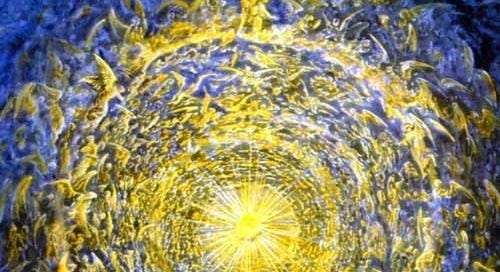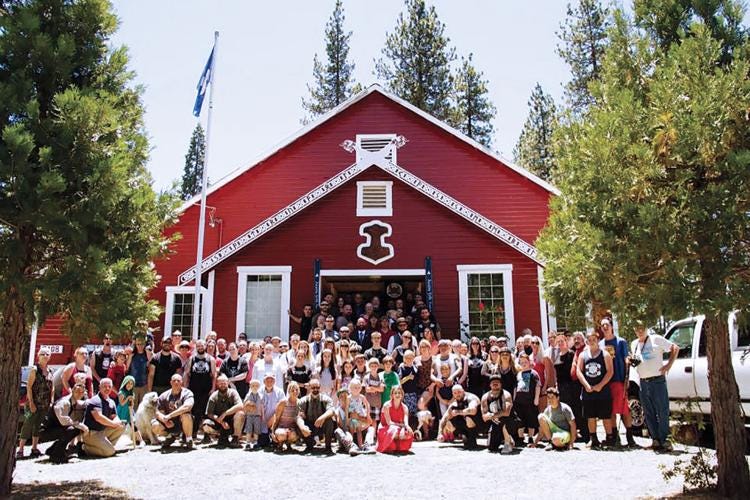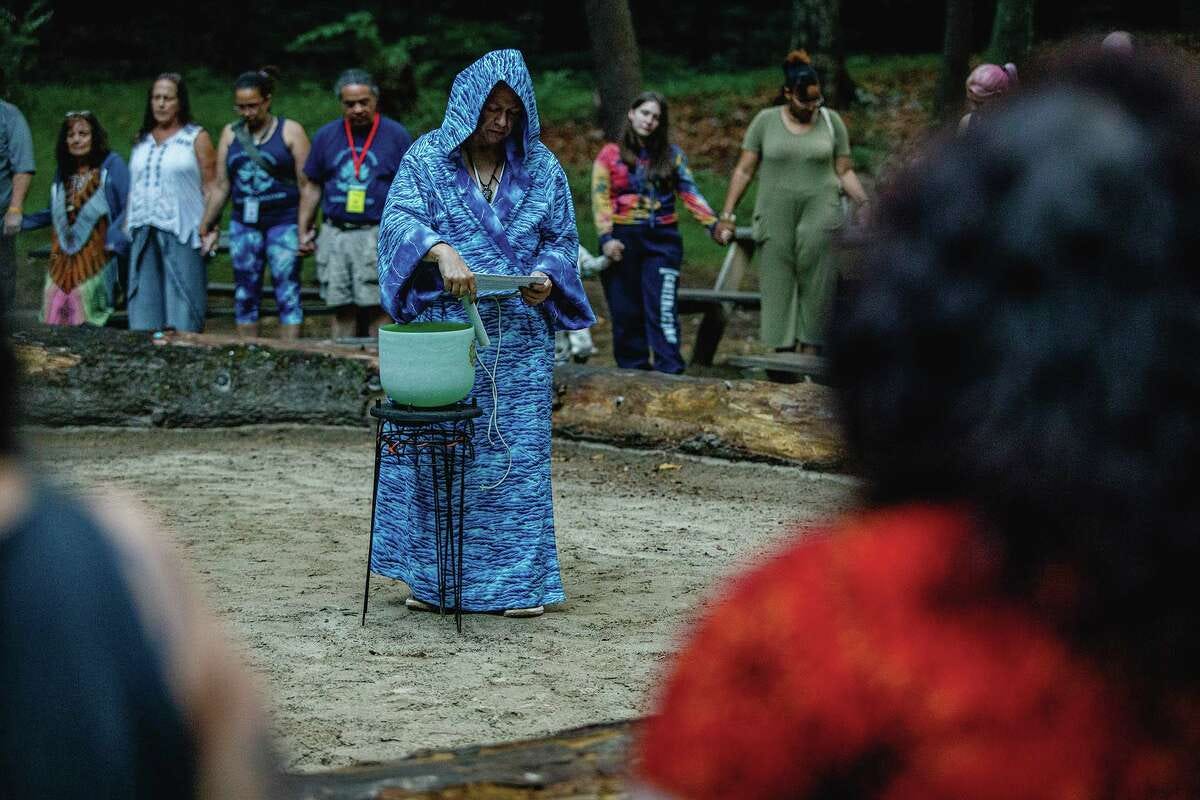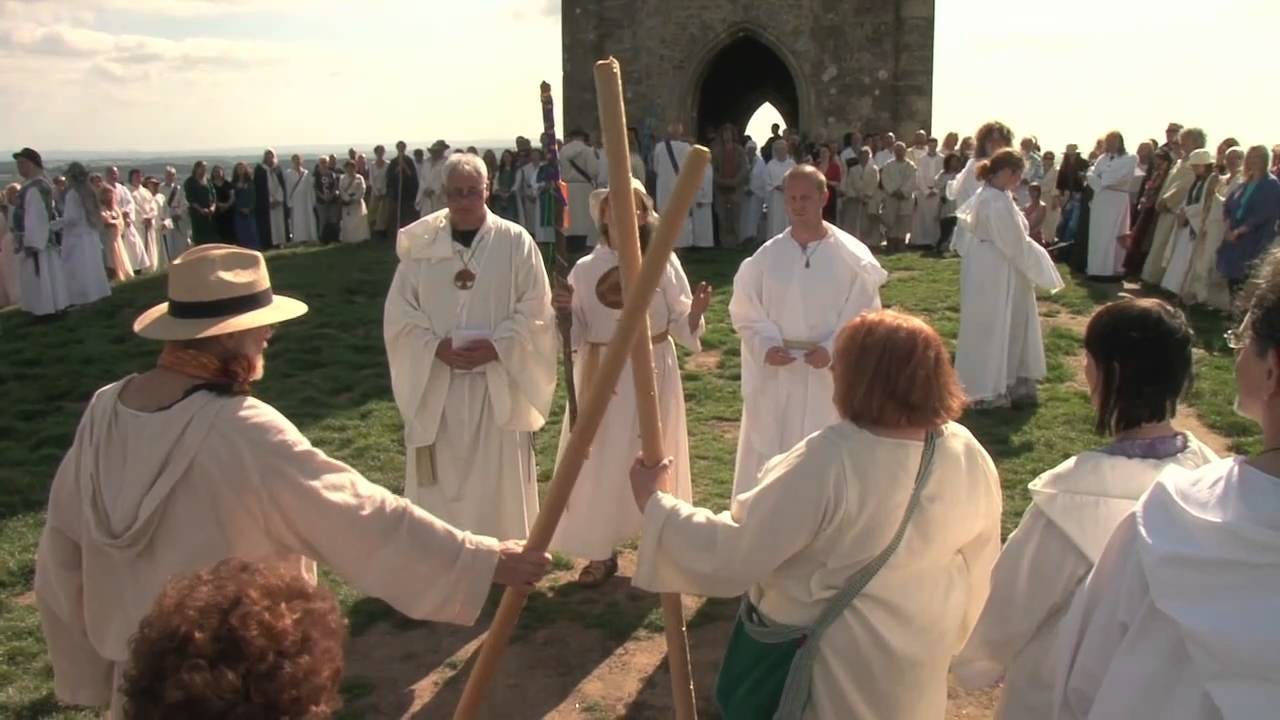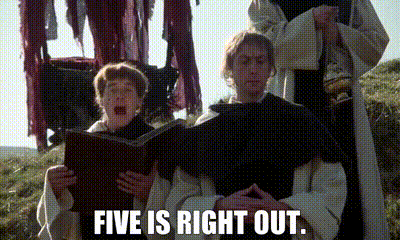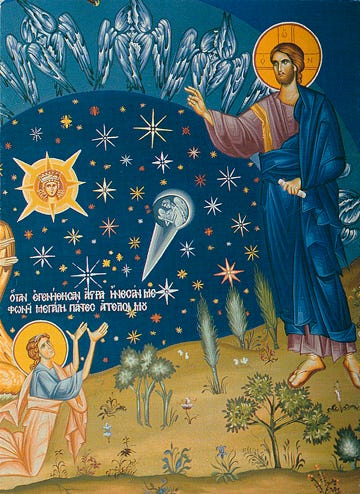(note: this is a longer article and your email may truncate it. If you cannot see all the text, you can view it at matsumoto.substack.com)
“Thou shalt have no other gods before me.” — Bible, Exodus 20:3. One of the 10 commandments.
What a weird thing for a monotheistic god to say.
I mean, you’d think the commandment would just be “Thou shalt have no other gods,” or, even better, “Thou shalt know there are no other gods.” Right?
Doesn’t say that though.
Instead it says, “Thou shalt have no other gods before me…” which, if I’m not mistaken, is an admission of two things. One, that there are other gods and, two, that the god of the Bible doesn’t mind if you worship them.
You know, so long as you worship him first.
Technically, this is a religious stance called Henotheism. On the surface it looks a lot like Monotheism, but it isn’t. Henotheists do not reject the existence of other gods, they simply think you out to be devoted to one god in particular, over and against all the rest. You see this often in ancient cultures. If I recall correctly, even the famously polytheistic Greeks, for a time, developed very Henotheistic attitudes about Zeus. The ancient Israelite people of the Bible were no exception. If you read the Old Testament it is clear that they believed in all sorts of gods, but, also, that their people were supposed to have a special one-on-one relationship with Yahweh. He was their god. Their god amongst many others.
You see this all over the text.
The Israelites are constantly building temples and high places to other deities and then turning right around and tearing them down again. A bit schizophrenic honestly. The people seem to be in a sort of constant argument about if this Yahweh fellow is actually the strongest god out there, and if maybe they might not fare a little better by hedging their bets and appealing to other deities too. Even King Solomon, whom the Bible describes as one of the wisest men to ever live, spent a fair portion of his Kingship building temples to Ashtoreth and Milcom and presumably some other more minor deities as well. With some exceptions (potentially Noah), the people of the Old Testament were absolutely not monotheistic. At least, not as we would understand the term. Honestly the whole concept of there being only one god was probably a foreign idea to them. On one level this is a bit scandalous to the modern Christian who has in his head the erroneous idea that the history of his faith is a lot cleaner and more straightforward than it actually is. On another level though, meh… it’s the old testament after all. People were different back then. The modern Christian can simply shrug and say, “well after all you know, they just didn’t know as much back then.” And fair enough. But a scandal much harder to ignore is the other truth. Which is that the people of the New Testament weren’t monotheistic either.
That’s correct.
And, again, if you think about it, this really shouldn’t be a surprise. Jesus lived in the Roman Empire. A polity famous for its pagan roots. The emperor, they believed, had divine ancestry, and Rome itself was filled to the bursting with alters to various deities. Jupiter, Juno, Apollo (my personal favorite), Vulcan, Diana, and many more besides. It’s not really hard to imagine then that many of the Jews and early Christians during the time of the apostles did their share of pinching incense and offering sacrifice to other deities. The books of Maccabees, which occur only a few centuries before Christ, recount how embarrassingly easy it was to get Jews to become Hellenists following their conquest by Alexander the Great. It’s highly probably that, after the Roman conquest, it was likewise embarrassingly easy to get them to worship Jove as well. Saint Paul himself traveled to Athens and stood on the Acropolis, preaching Jesus to the assembled masses worshiping every god under the sun.
And now, today…
Most people think polytheism is weird.
How’d that happen?
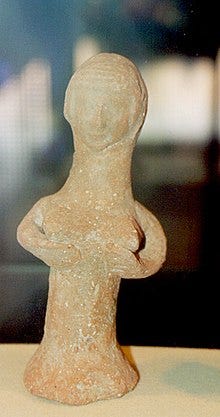
Well… religion is a messy business.
So messy that it’s understandable why many people today think it’s nonsense. It can be a pretty impenetrable topic and the signal-to-noise ratio in all the discussion surrounding it has always been poor. The fact is though that polytheism is probably the default condition of the human mind… and the Bible understands that. Yes, there are passages where people are chided as foolish for worshiping idols of wood and stone but there are also passages which seem to treat the other deities as quite real. Certainly the worshipers of such deities seem to sometimes have real powers. Pharaoh’s magicians for example, or the Witch of Endor (George Lucas got it from the Bible) who famously conjured up Samuel’s ghost. Indeed, it wasn’t until after their occupation by the Greeks and Romans that the Jews and Early Christians seem to have started to reject even the idea that other gods might exist and this was probably more of a political move than a theological one. Rejecting even the possibility that the gods of the Greeks or Romans could exist has the knock-on effect of rejecting the possibility that the empires built in the names of these gods were legitimate. Likewise, it was not until Christianity became the official religion of Rome that its desire to remove all vestiges of a pagan past really kicked into gear.
As the centuries passed and the Church became more and more ascendant, it became the normative position that other “gods” were, at best, figments of the imagination or, at worst, demons posing as deities for the ruination of souls. Strangely, Christianity became a religion focused in many ways on de-enchantment. Other gods? Out. Magic? No thank you. As the middle ages wore on and approached their end, Christians began to elevate Reason, Rationality, and Philosophy over and above Mysticism and Intuition. The Scholastics, Aquinas, all of that great history of “Natural Philosophy”… by such measures did the Church forge the knife of its own destruction. Eventually alchemy gave way to chemistry and astrology to astronomy, and Occam’s disenchanting razor was set against the Church itself. If all the other “gods” were fake then why wasn’t this last one? If magic wasn’t real then how were miracles? If you couldn’t pray for the dead then what good was it to pray for the living? The Church began to die. And, from its corpse, many raised on the fruits of Rationality and Reason are surprised to learn that we actually aren’t getting the atheistic Star Trek utopia that science fiction promised us. We’re getting… something else.
They really shouldn’t be.
Surprised I mean.
Rationality and Reason are ideas that flowed out of Christian theology and cannot be supported without that as its base. A “Rational” world would, logically, require a rational creator, else one what grounds would you assume that stuff had to “make sense”? Indeed it’s much more “logical” that stuff wouldn’t. I mean, if everything came from a giant explosion and developed more or less at random… wherefore comes the need to be orderly and sane? The world presents itself to us not as a rational clockwork of interleaving parts, but as a terrible tangle of chaos. Hurricanes and Earthquakes and Thunder. Invisible vectors of disease. Accidents without reason or purpose. Violence that has no motive. And, then, within us, a mess of desires and frustrations that have no end, and which drive us to do all manner of things, even against our judgment or best wishes. A billiard ball may roll across a table the same way every time, and thus be able to be described by physics. But history? A love affair? The birth of a child or a murder? The bare facts of the case is that these things never happen the same way twice, and hence are in some ways indescribable. The world, in fact, presents itself to us more as a tangle of competing desires and personalities than it does as a logical machine. As my daughter, who is six, recently said to me as we were walking outside, “Daddy, what if everything’s alive?” “It might be,” I answered. “I think it is,” she said.
Animism. Polytheism.
The default state of the human mind.
Mark my words. Faith. Real faith… cannot occur without re-enchantment. Without new eyes to see the world once again as a living place. Christianity can never go forward denying outright the default state of mind that every human being has from the moment they are born. Instead though, Christianity today, as does the Scientific secular culture which flowed from it, looks out over a dead world. One that has no soul. A world full of trees which cannot hear and waterfalls which cannot love. Of course, an educated Thomist sort of man might go so far as to admit that other living things, like plants and animals, have souls, sure. But not rational ones. Not souls which could go to heaven or which could love. Not eternal ones. And really, that’s sort of just as good as being dead, isn’t it? And, even if you get that admission out of them, to extend that thinking beyond organisms, to suggest that rocks and mountains and hills and stars might have souls of any kind…
Well. In the words of Monty Python… that’s RIGHT OUT.
And yet, as I said. It was not always so.
And it need not be so forevermore.
I admit I am biased here because I am, in my heart, a medievalist. Admitting of course that they, like everyone in every age, were far from perfect, I nonetheless maintain that medieval Christians possessed a nuance and balance in their faith which has not been repeated since. A nuance which the poisons of “Reason” and “Theology” eventually destroyed. Doubtless an inkling of this same feeling drove the sentiments of the reformer Martin Luther, who famously declared that Reason was the Devil’s whore. Where I disagree with him is that he sought to solve this problem by going sub-rational, denying the utility of philosophy and reason all together. I rather prefer the path of mysticism, or suprarationality. Acknowledging that The Mind has its place, but always remembering that it is secondary to The Heart.
You see, in the Medieval World the “Pagan Problem” as we might call it, the tendency to want to ascribe agency and soul to everything in the world, and then to commune with it, was solved. Really solved. Not just papered over or ignored… but solved. And it was solved in the most mystical of ways.
By angels.
Angels are the missing piece here. The link between the natural world of flesh and bone and the celestial realm of Heaven above. I would go so far as to say that any form of Christianity which neglects to account for angels (most of them today) cannot possibly formulate a satisfactory worldview. Somehow along the way, most of us got it into our heads that there were human beings and God and… basically nothing else. The whole supernatural ecology of souls besides us outright ignored. And as much as I appreciate the recent memes about “Biblically accurate” angels that have been floating around, remembering what angels look like is only scratching the surface of the problem. The real meat of it, is remembering what it is that angels do.
I mean, have you ever thought about that? Like, why would God make angels anyway? What’s the point? Was he just being vain, as John Calvin seemed to think, and created beings for no other reason than to have someone around to eternally sing his praises? Or were they just made to help us? We children of Noah? Is it really feasible that angels exist for no other reason than to occasionally protect us from a car crash like you used to hear about on Oprah, or to help old women find their keys?
Just what are the angels meant to do?
Well, the answer, far as I can discern, is that the angels were made to sing.
Specifically, to sing the cosmos into existence.
That’s why the medievals organized them into "choirs.”
Listen there’s a reason everything vibrates…
Keep reading with a 7-day free trial
Subscribe to Holy is He Who Wrestles to keep reading this post and get 7 days of free access to the full post archives.


